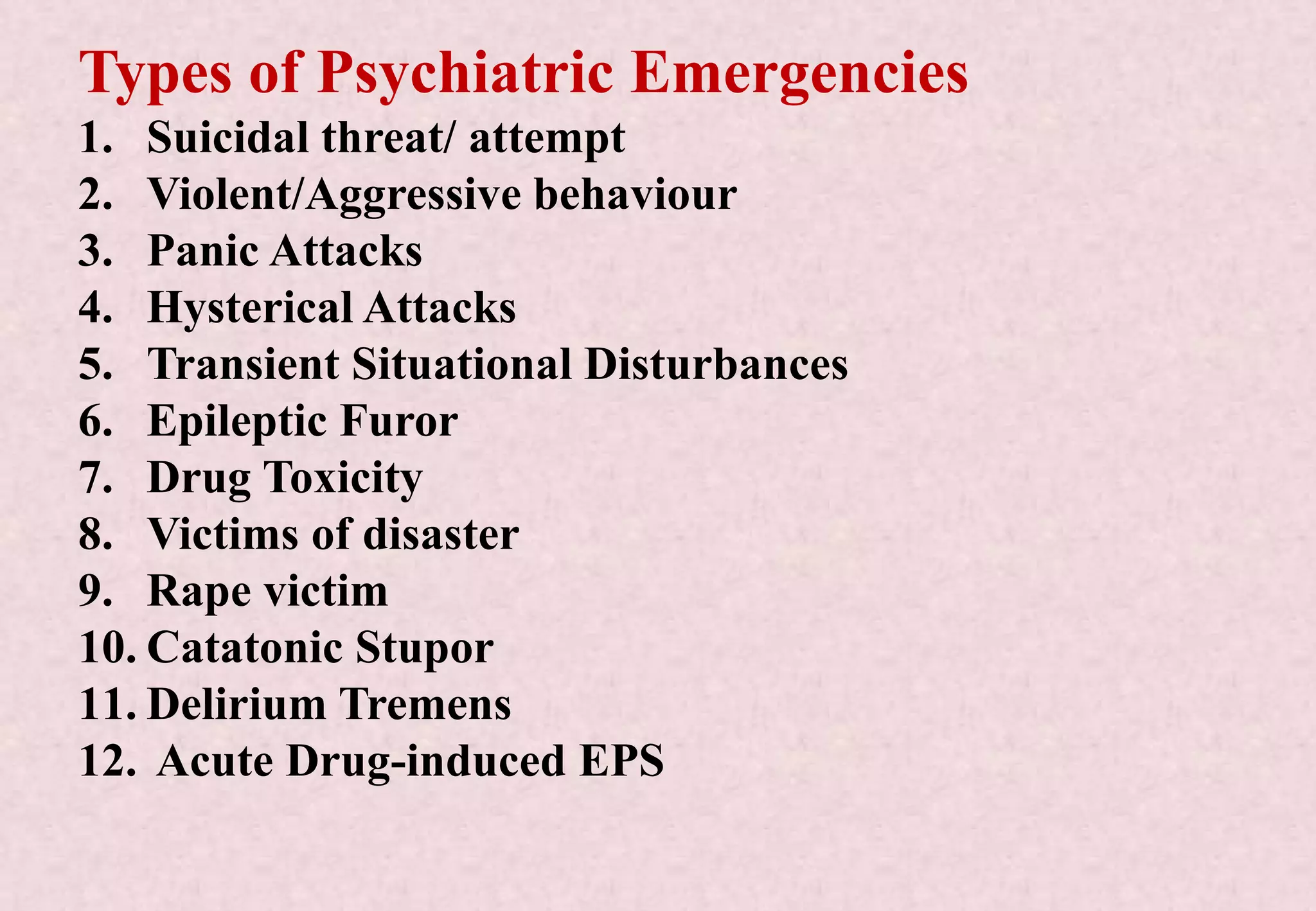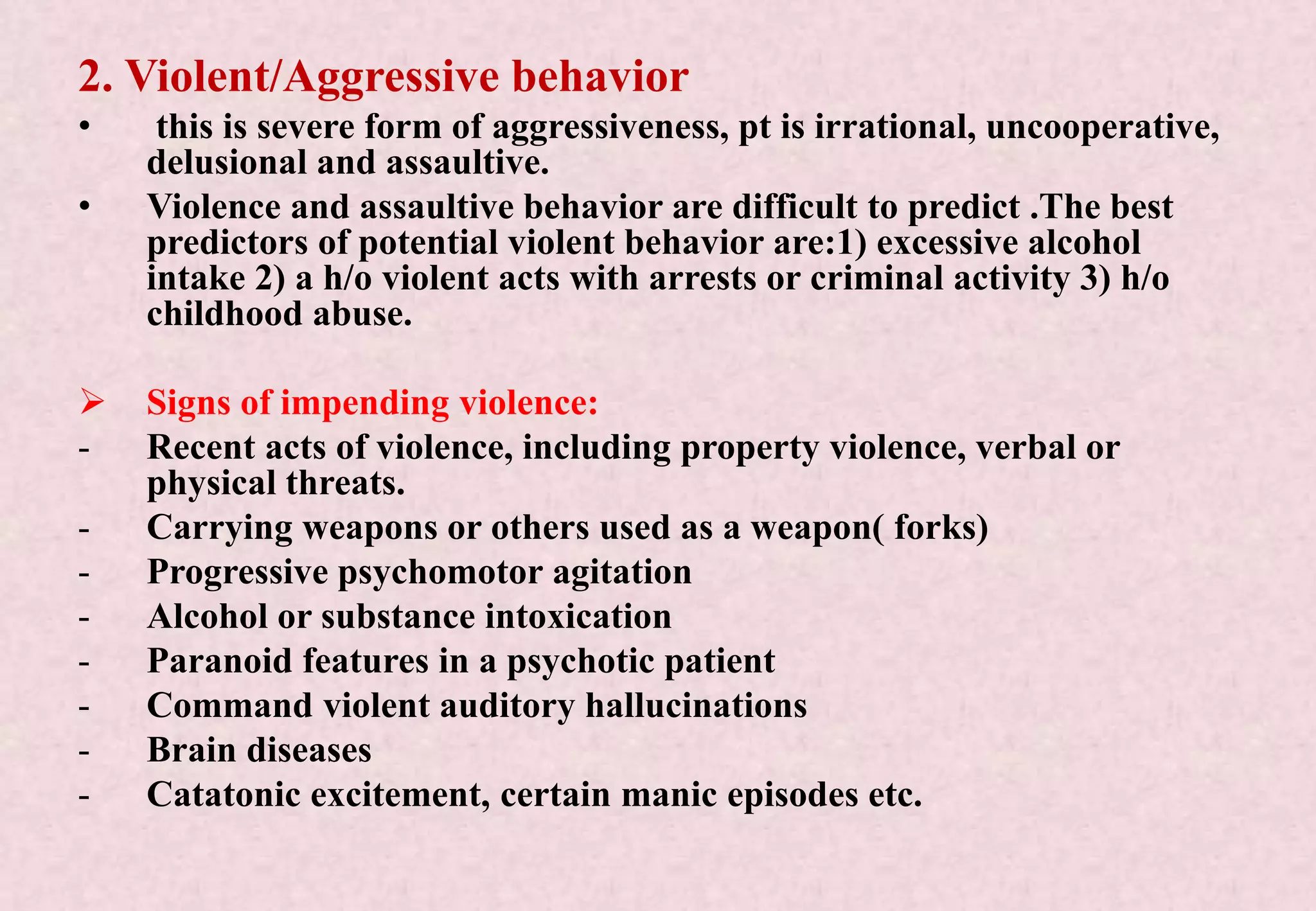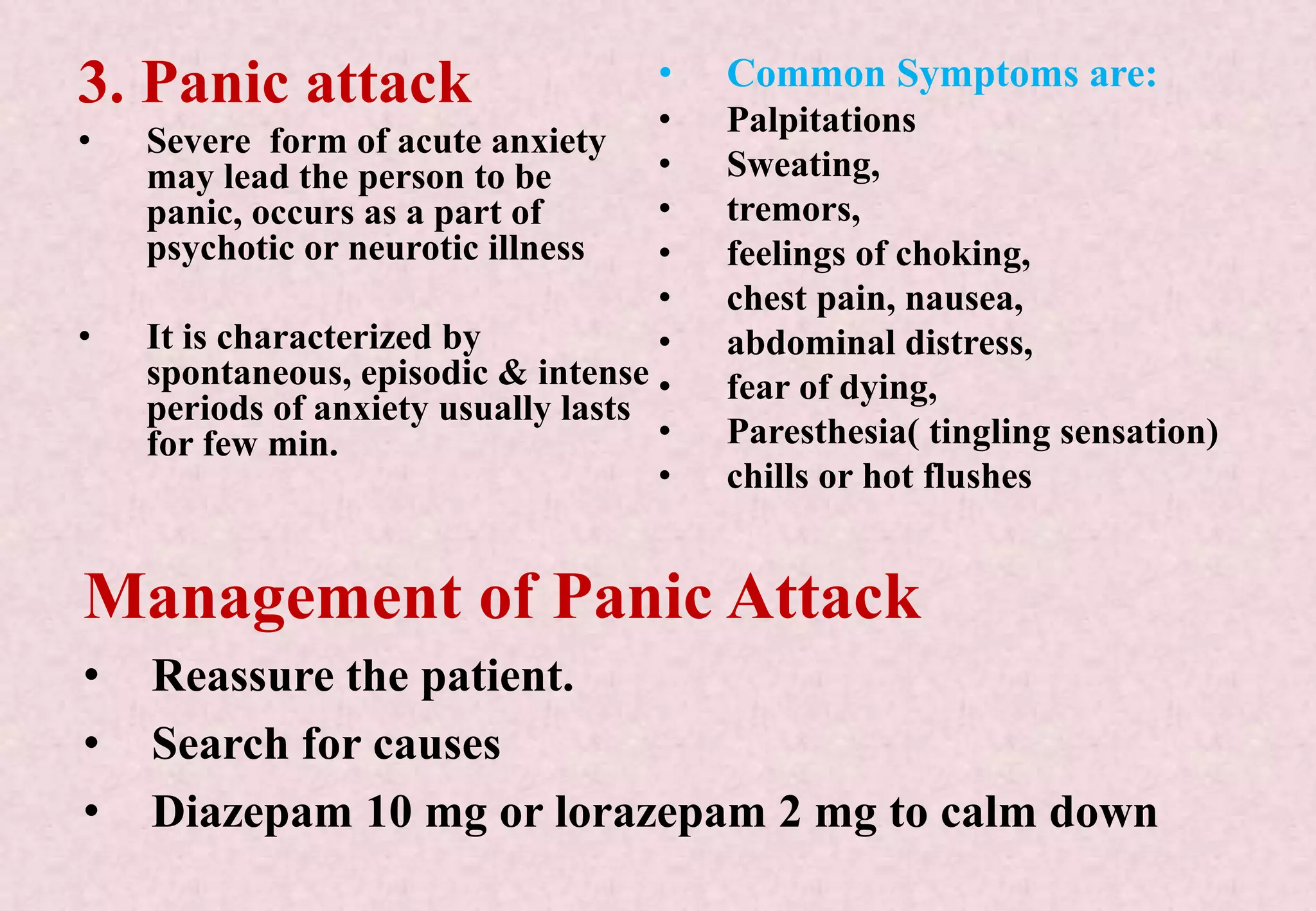The document outlines psychiatric emergencies, defining them as conditions requiring immediate intervention due to severe disturbances in thought and behavior. It categorizes various types of emergencies, such as suicidal threats, violent behavior, and panic attacks, and provides insights into their etiology, risk factors, and management strategies. Serious attention to patient safety, continuous monitoring, and appropriate therapeutic interventions are emphasized for effective management of these crises.




































